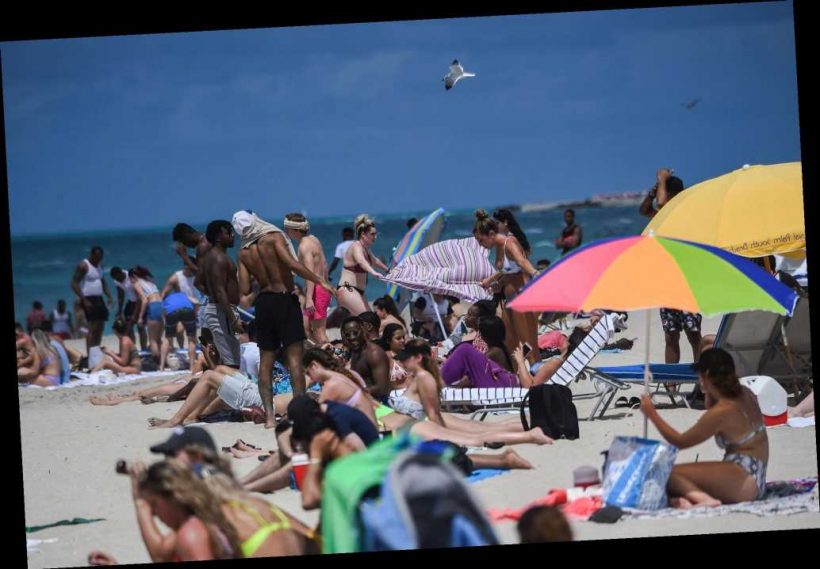Originally Published by:
Carnival Cruise line extends canceled U.S. departures through May
Man and wife renovate family-owned school bus, plan to recreate '70s road trip
Six-legged dog survives birth in reported first: 'A miracle'
Florida officials are cracking down on spring-breakers hoping to flee to the state’s beaches amid the pandemic.
New restrictions are being implemented to help slow the spread of COVID-19 as vacationers touch down in popular South Florida destinations like South Beach, where fewer Miami vices like staying out past midnight and alcohol consumption, among other things, will be tolerated.
“If you’re coming here because you think it’s an anything-goes place, please turn around or go somewhere else,” Miami Beach Mayor Dan Gelber told WPLG-TV this week.
Miami Beach is imposing a number of health and safety measures during its “high impact period” now through April 12. That means no alcohol, coolers, tables, tents, or live music at public beaches. Capacity limits are also currently in place at some of Miami’s more high-traffic beaches, according to the guidelines.
The Florida city is also imposing a curfew at midnight in its entertainment district, and liquor stores won’t be able to sell alcohol past 10 p.m. in Miami beach, or after 8 p.m. in the Art Deco Cultural District.
Over in Fort Lauderdale, Mayor Steve Gellar said residents and visitors can expect more law enforcement at busy areas, with social distancing and mask-wearing mandates being heavily enforced. He also stressed that the city could shut down businesses that have been hit with a number of health violations.
“I’m OK with saying we will try and focus on the offenders and not do a countywide curfew, provided that Fort Lauderdale agrees to shut down the offenders,” Gellar said, as reported by CBS4 Miami.
An average of more than 1,000 people have been dying from COVID-19 per day, data suggests, and doctors say travel puts more people at risk for contracting and spreading more contagious strains of the virus.
“The emerging strains could also be more easily dispersed by the increased travel in the spring and early summer. As people return from travel destinations, they may place people in their local communities at higher risk for contracting these resistant strains,” Dr. Robert Glatter, an emergency physician at Lenox Hill Hospital in New York City, told Fox News.
Indeed, Glatter says travelers looking to get away for spring break should expect to proceed with caution, advising to drive instead of fly when possible, wear masks at all times, and stick to small gatherings outdoors, while maintaining a safe social distance from others.
“While people who are vaccinated are protected against severe disease and death, it’s still unclear if they can transmit the virus to others. It’s still important to wear a mask when around others who are not living in your household or in your pod. Be smart and careful,” Glatter said.
Share this article:
Source: Read Full Article

